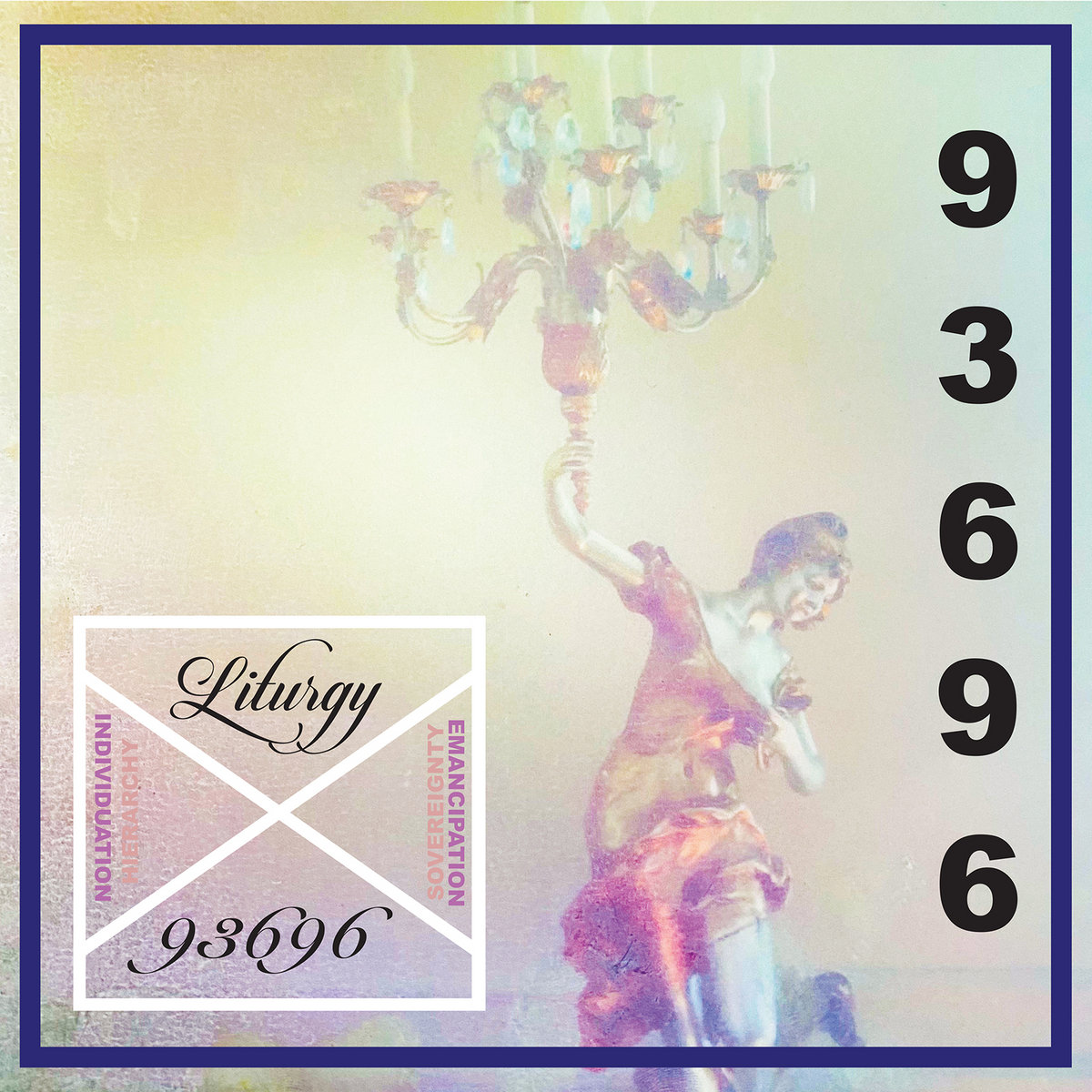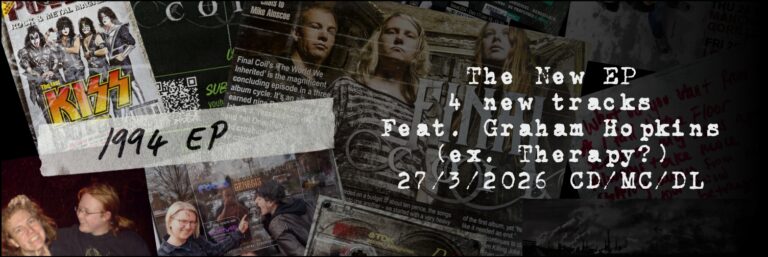
Press releases will frequently claim that a given band “transcends the traditional parameters of what constitutes a rock band”. Unfortunately, press releases are often given over to hyperbole in an attempt to differentiate themselves from the myriad other such releases landing in our mailbox and it is only rarely that such a claim is true. However, in the case of Liturgy, it is nothing less than the absolute truth. Having been formed in 2005 by Haela Ravenna Hunt-Hendrix a as solo DIY project, Liturgy expanded to a quartet to release 2011’s acclaimed Aesththica, 2015’s The Ark Work, 2019’s H.A.Q.Q. (for which a series of YouTube lectures is still ongoing) and 2020’s Origin of the Alimonies. To deal with their complex lyrical themes, Liturgy draw from black metal, art rock, opera, trap and devotional music to create something that is ever evolving and absolutely unique.
And so, to 2023 and93696. As might be expected, the title has deep meaning, being “derived from the religions of Christianity and Thelema, a numerological representation of heaven, or a new eon for civilization”. As the concept implies, it is not an easy ride and the album sees seismic sonic shifts as it moves from track to track. Daily Bread opens the record calmly enough, with Hunt-Hendrix’s voice soaring in the ether, although a sense of unease is introduced as subtle glitching effects serve to undermine its purity. It is a short introduction that gives way to the frantic, blackened outpouring of Djenneration, which sounds like the culmination of a bizarre experiment where The Mars Volta and Therion got together to jam on Mayhem covers. Caught in the mix alongside the blast beats, screams and churning guitars, classical instrumentation vies for attention, albeit used to further the listener’s disorientation rather than pour oil on the troubled waters. Later, the guitars drop out altogether and we’re caught in the heart of the storm with Aphex Twin, as twitchy beats stutter across the oasis. It is but a short reprieve, however, and we’re soon cast back into the maelstrom. Finally, exhausted by their exertions, the band briefly slow things with Caela, which opens on a churning art rock riff before the harrowing screams and scattershot percussion return with full force. The first real relief is found in the short Angel of Sovereignty, a choral piece that feels entirely natural, for all the brutality that surrounds it, and it provides the listener with the equivalent of a mental reset before the awkwardly doomyHaelegen II emerges. Utilising the frozen horror of Burzum, but with twitchy, modern trap production, Liturgy play with expectations, creating a sense of discomfort that is profoundly visceral. As such, when a clean vocal that could be drawn from BMTH falls into the mix, the listener just accepts that this is Liturgy’s reality, while the jazz-influenced time signatures continue to batter the senses around it. In contrast, Before I knew The Truth soars around an arpeggiated riff that, without sacrificing heaviness, feels entirely different from that which has gone before. It concludes on a moment of calm, which allows the subtle, synth-led Angel of Hierarchy to soothe the listener’s fevered brow.
Opening the second half of the album, the eerie flutes and subtle percussion of Red Crown II evoke the torch-lit halls of some decaying keep, while the gentle keys of Angel of Emancipation eventually find themselves surrounded by the sparkling light of echo-drenched pads. Having allowed the listener time to recover, the band edge into Dillinger Escape Plan territory with the lurching extremity of Ananon, It is, however but a short prelude in the face of phenomenal epic 93696. A fourteen-minute journey into the outer reaches, 93696 eschews dizzying speed for an imperious pace that is the more effective for allowing the towering riffs to breathe. It is a remarkable piece of music, utterly ferocious and yet possessed of some intangible sense that is life-giving rather than enervating. It’s difficult to explain, but amidst the quavering riffs and harrowing screams, there’s a lightness, as if the very brutality the band deploy is lifting a mental weight from the listener. After so tumultuous a piece, the acoustic Haelegen II (Reprise) provides a gorgeous coda that ushers the daylight back in, while the string-soaked Angel of Individuation uses hammered dulcimers to create a greater sense of movement. It all builds to a climax that introduces another epic – the monstrous Antigone II. Opening with sub-operatic vocals and awkward chords, it’s another exploratory piece that takes in the rich range of influences offered across the album, with stair-stepping chords, moments of choral calm and dense waves of industrial noise that finally resolve upon a gorgeous hanging chord that segues into Immortal Life II. One final vocal piece, Immortal Life II concludes the album much as it began.
Describing the mercurial Liturgy is no easy task, as they truly do transcend the parameters of what most people conceive rock music to be and perhaps it is better to judge the band not by what they are but what they do. Liturgy’s gift is not only to make the world disappear, but to truly engage the listener’s senses in a way that few bands can. In listening to 93696 I found myself torn away from my own existence, simply lost in the world that Hunt-Hendrix and the band have created, so much so that when the album finally concluded, I realised I had barely written a word. It would take two more attempts before I managed to get this down, and even now I am a little uncertain as to my conclusions. It is not easy music, however. Many will find themselves turned off by the ferocity of the band’s approach, unwilling to seek out the beauty that so often emerges within the heart of the band’s towering compositions. For those willing to make the journey, however, herein lies something very special indeed. 8.5/10



